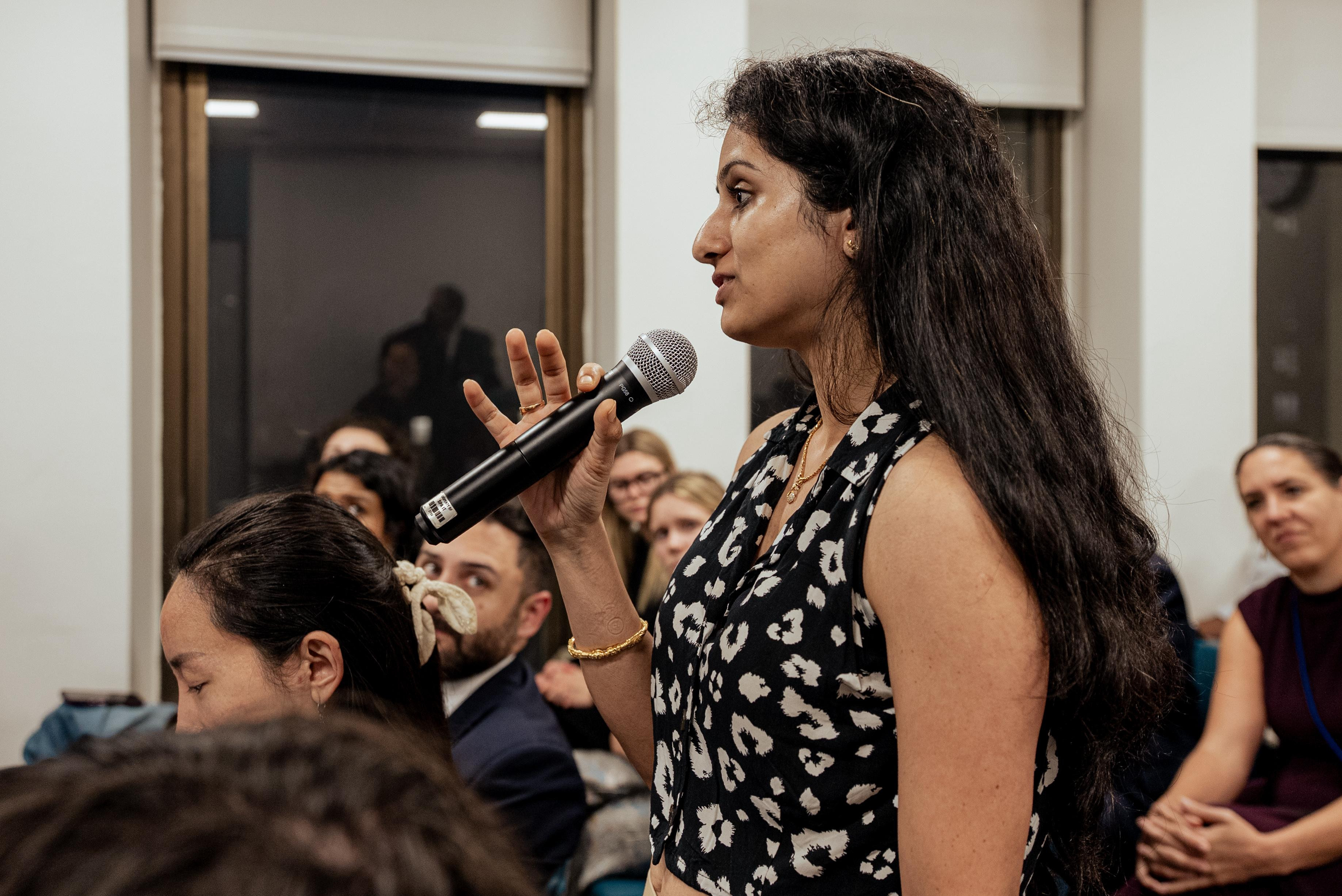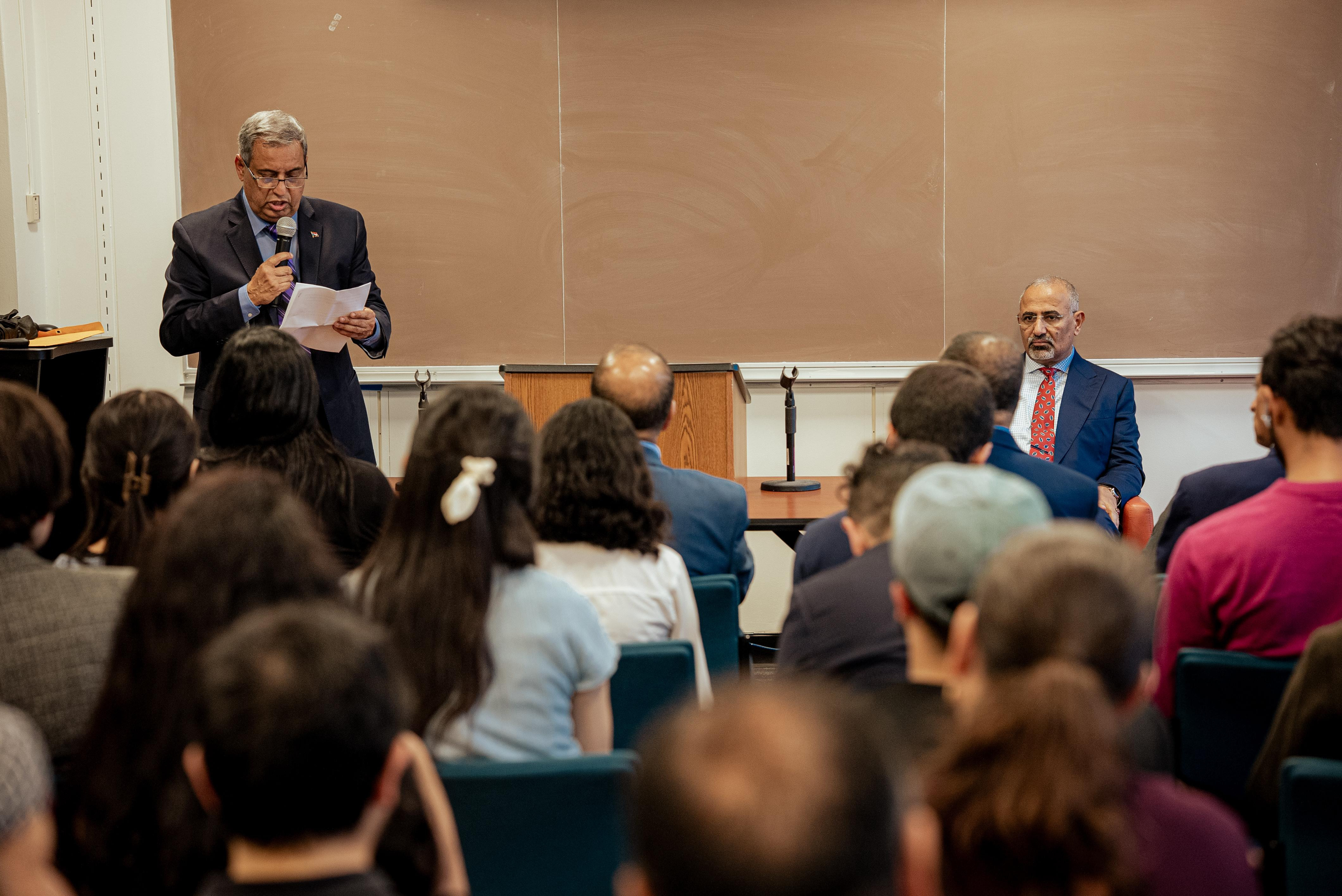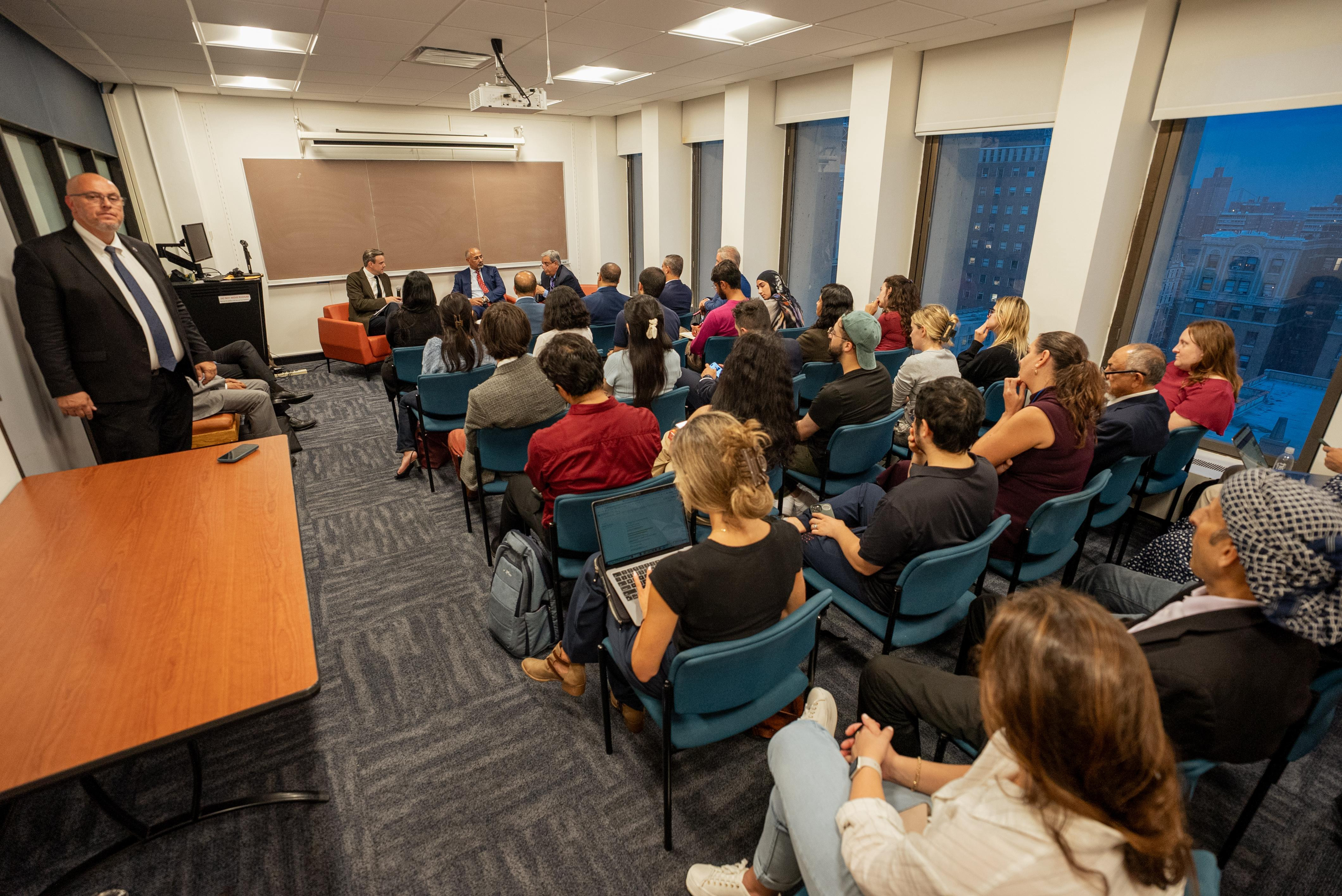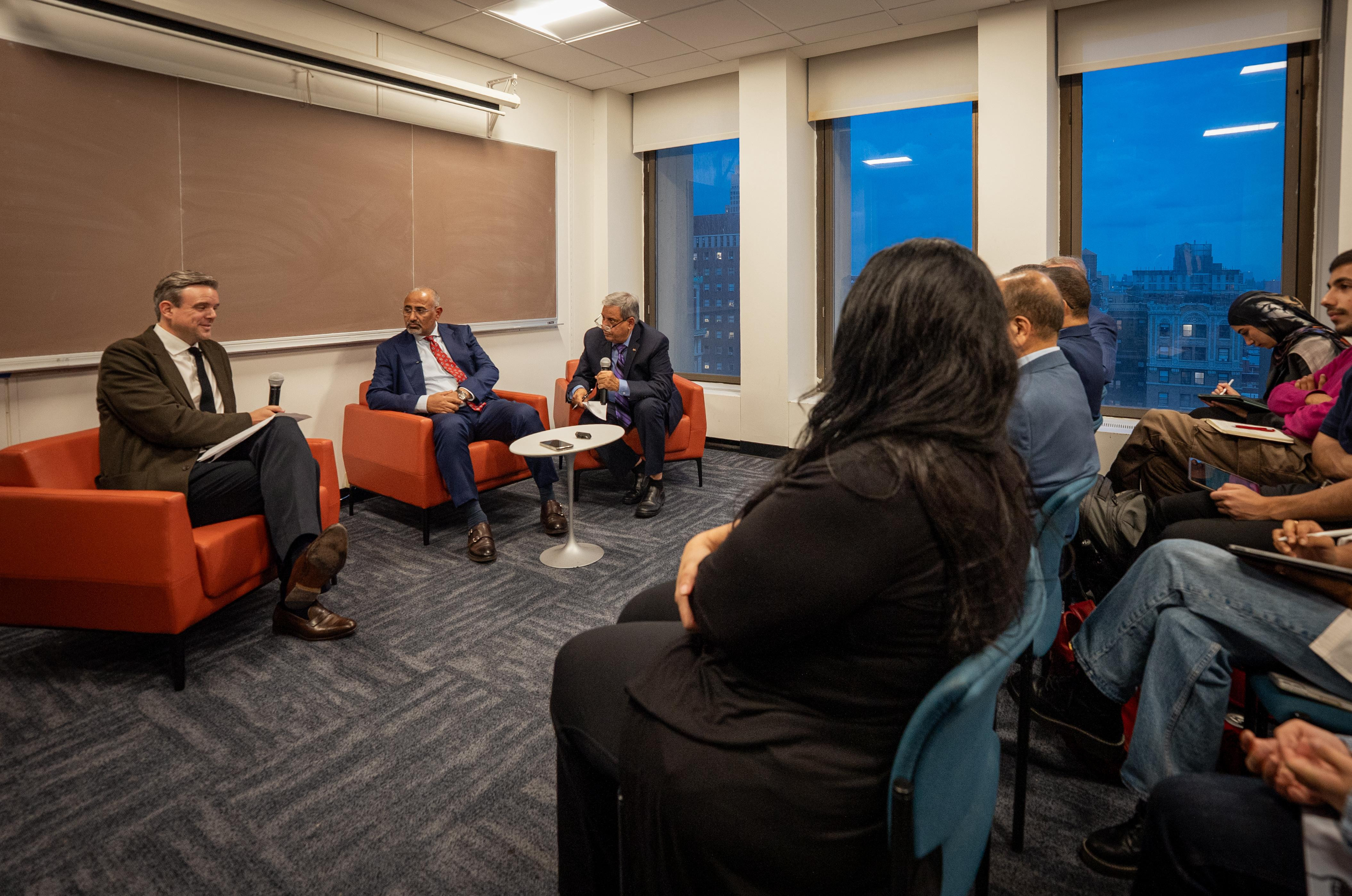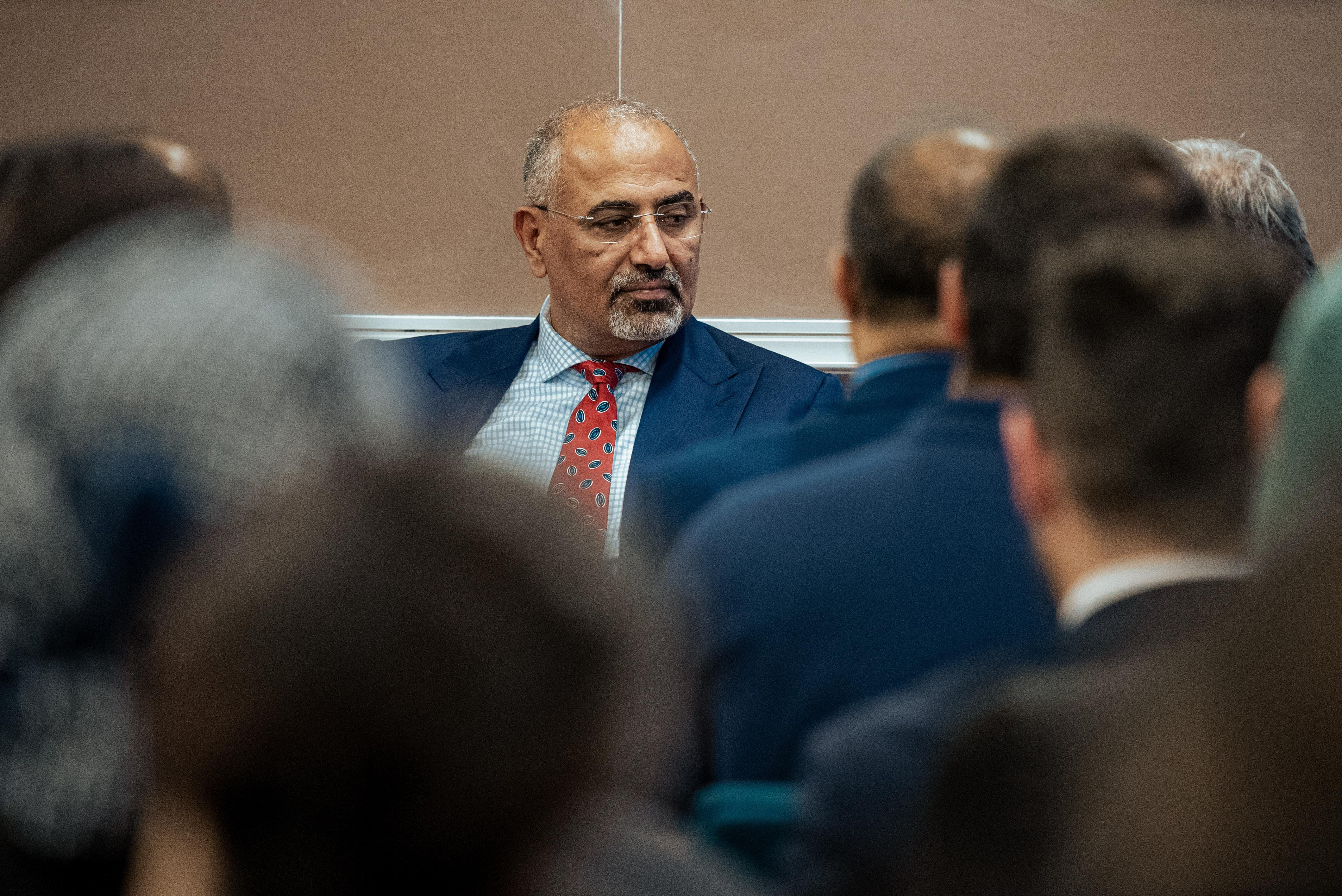Political Declaration Statement Issued by the Southern Transitional Council
Political Declaration Statement Issued by the Southern Transitional CouncilThe Southern Transitional...
President Aidarous Qassem Al-Zubaidi, President of the Southern Transitional Council (STC) and Vice Chairman of the Presidential Leadership Council (PLC), reaffirmed that lasting peace in Yemen will only be achieved by recognizing the right of Southerners to self-determination and reverting to the pre-1990 unification project by establishing two independent states in the North and South.
These remarks came in President Al-Zubaidi's address during a discussion session organized by Columbia University on the sidelines of the 80th session of the UN General Assembly in New York, with the participation of a select group of researchers, academics, and policymakers.
President Al-Zubaidi clarified that the unification project between the North and South failed from the start, and attempts to fix it have been unsuccessful. He indicated that the continued denial of this reality fuels the conflict and threatens regional stability, adding, "The international community must realize that the Houthis in North Yemen can only be contained with the presence of a strong South state, offering a viable alternative based on democracy, pluralism, and prosperity."
President Al-Zubaidi also noted that the STC is working to build a modern state based on the principles of freedom, democracy, and coexistence, unlike the Houthi project in the North, which imposes a sectarian religious state modeled on the Iranian example.
Regarding the recent roadmap proposed by the United Nations, President Al-Zubaidi warned that it could be a step towards legitimizing the crimes of the Houthis and giving them a cover to rule all of Yemen, which the people of the South categorically reject, stressing that any future peace process must start from the reality on the ground and recognize the right of Southerners to freedom, security, and self-determination.
President Al-Zubaidi highlighted that the Transitional Council, despite the challenges of the power-sharing in the Yemeni government, is working hard to provide public services and improve the economic situation, and referred to cooperation with the World Bank to implement strategic projects in the electricity sector, successes achieved in strengthening the value of the local currency, and direct interventions to address humanitarian crises like the flash floods that hit the capital, Aden, and Lahij Governorate last month.
President Al-Zubaidi concluded by emphasizing that the South will not accept a political vacuum or mismanagement but rather seeks to establish a democratic, sustainable political entity that meets the aspirations of its people and presents a successful model for stability in the region.
